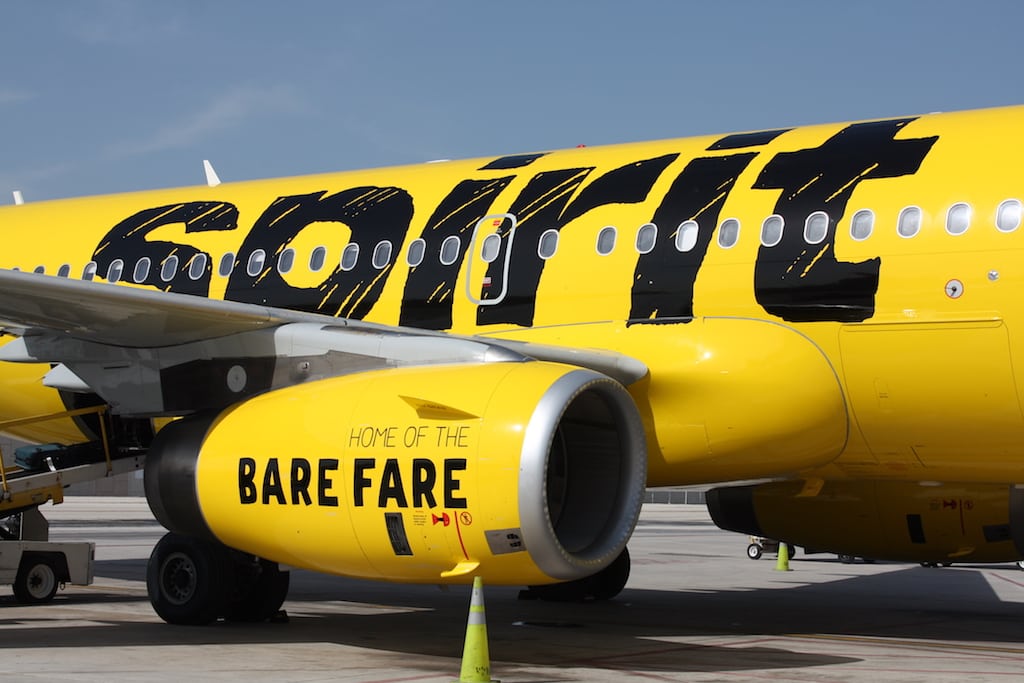Spirit Airlines' On-Time Arrivals Plan Backfired When It Cut Corners

Photo Credit: Spirit tried to make its schedule more efficient this summer, but the strategy shift has been problematic Pictured is one of the airline's Airbus A319s. Spirit Airlines
Skift Take
Every airline executive knows how to improve on-time performance. But there's a problem. It's expensive, since airlines usually must add slack to the schedule. Eventually the costs add up so airlines reduce the slack, hoping reliability will hold steady. Sometimes this works. Sometimes it doesn't.
Spirit Airlines will take a major cost hit later this year as it rejiggers operations to focus on reliability after a rough second quarter, the airline said in a statement Wednesday after markets closed.
After several years of disappointing customers with late flights and cancellations, Spirit switched operational strategies in 2016, with then-CEO Robert Fornaro prioritizing on-time performance over the fanatical cost-control favored by the previous regime. That strategy worked, and customers returned once they knew they were less likely to face long delays. In October, for the first time in recent memory, Spirit was the most on-time of any U.S. airline.
But Spirit is an ultra-low-cost carrier, and building slack into the schedule is costly. An airline that wants to juice on-time statistics usually must add spare aircraft, cut crew productivity, and schedule more time between flights. As reliability improves, customer satisfaction scores rise, but this strategy is horrible for a company's productivity. (Airline executives often refer to this as "buying" on-time performance.)
So this summer, Spirit did what most cost-conscious airlines try once they're tired of spending a fortune to fix operational woes. Spirit reduced some of the costly changes, flying aircraft more hours each day, and cutting the number of pilots held in reserve for unexpected flying. "These actions reduced the buffer in the system to recover from adverse weather," CEO Ted Christie said in a statement.
The results have not been good, according Christie, who succeeded Fornaro as CEO in January. In April, he said, Spirit spent $6 million in expenses to rebook customers and move crew where they were needed after an Easter weekend storm hit Florida.
"In developing our summer 2019 plan, we tried a few things to improve overall efficiency and profitability," Christie said. "Admittedly, we were over-aggressive in our assumptions about weather disruptions this year which, when coupled with our changes, exacerbated the level of flight disruptions we’ve been experiencing."
Costly Fixes
Christie said Spirit will fix its problems, but in updated investor guidance, the company warned it would cost money.
In the third quarter, Spirit said cost per available seat mile, excluding fuel, an industry metric measuring how much an airline pays to fly each seat one mile, will increase 7 to 8 percent, year-over-year. In earlier guidance, the company had said it expected these costs would rise between 1 and 2 percent.
Not all of it is related to operational challenges, but much of it is, either directly or indirectly. Among other issues, Spirit said it expects it will cancel more flights than planned, while spending more money to rebook customers.
This is a big cost jump for an airline whose business plan centers around its cost control. But in the statement, Christie said he expects this will only be an issue for the rest of this year.
"While we are not satisfied with these results, we have a firm understanding of the inputs driving the cost pressures," Christie said. "We are confident the refinements we are making will set us up well for 2020."
He told investors the airline is "adjusting" its crew reserve levels and changing how it schedules flights for the peak warm-weather period next year.
Second Quarter Results
Despite the hiccups, Spirit turned in a profitable second quarter. The airline said it made net income of $114.5 million on revenues of about $1 billion.
The airline's total revenue per available seat mile increased 5 percent compared to the same period last year, though it benefited from a shift in the Easter and Passover holiday weekends, which were partially in the first quarter last year.
In the second quarter, its unit costs, excluding fuel, increased 4.6 percent year-over-year.
"In addition to the Easter storm, the Company experienced multiple storm-related flight disruptions throughout the rest of the quarter which drove additional passenger re-accommodation expense," it said.

